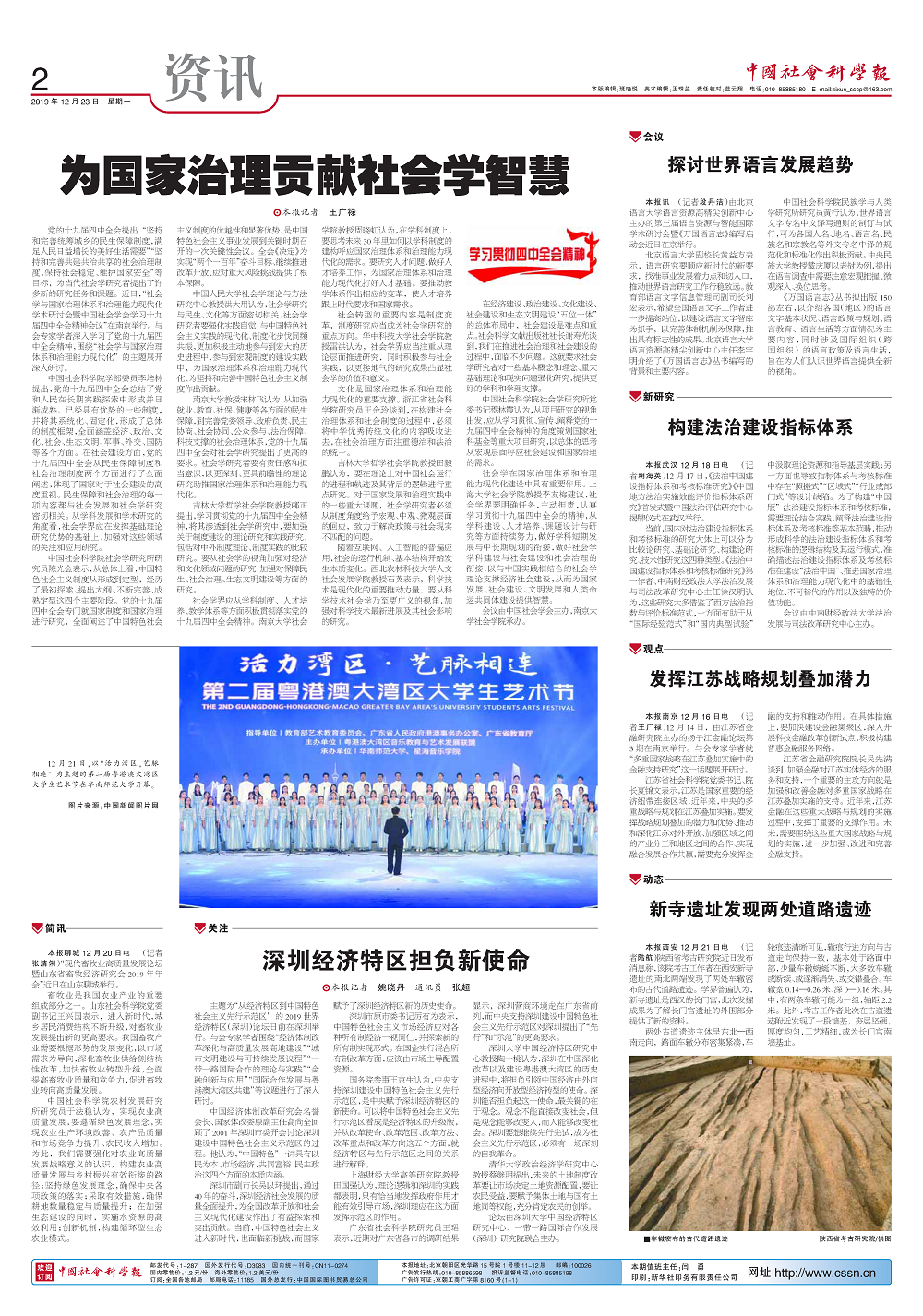The 2019 World Special Economic Zone (Shenzhen) Forum, themed “From Special Economic Zone (SEZ) to Pilot Demonstration Area of Socialism with Chinese Characteristics” was recently held in Shenzhen. The participating experts and scholars conducted in-depth discussions around the topics such as “Deepening Economic System Reform and Building High-quality Growth Engine”, “Agenda for the Development of Urban Civilization and Sustainable Development”, “Theory and Practice of Belt and Road International Cooperation”, “Financial Innovation and Its Application”, and “International Cooperation Development and Joint Building of Guangdong-Hong Kong-Macao Greater Bay Area”.
Gao Shangquan, Honorary Chairman of the China Society of Economic Reform and former Deputy Director of the State Commission for Restructuring the Economic System, reviewed the CPC Shenzhen Municipal Committee meeting in 2001 to discuss Shenzhen's building of the pilot demonstration area of socialism with Chinese characteristics. He believed that the term “Chinese characteristics” carried four essential connotations: people-based policies, market-oriented economy, common prosperity and democratic politics.
Wu Yihuan, Vice Mayor of Shenzhen, said that after 40 years of efforts, the economy and society of Shenzhen had developed with improved quality in all fronts, making rewarding exploration into and outstanding contributions to the country’s reform and opening-up and socialist modernization. She said that socialism with Chinese characteristics had currently entered a new era and encountered new challenges, and the country tasked Shenzhen Special Economic Zone (SEZ) with a new historical mission.
Li Youwei, former Secretary of the CPC Shenzhen Municipal Committee, said that in the socialist market economic system with Chinese characteristics, all forms of ownerships shall be treated equally, and new realization forms of ownership needed to be explored. He continued that in the implementation of mixed-ownership reforms in state-owned enterprises, the market must lead the allocation of resources.
Wang Jingsheng, Counselor of the State Council, believed that the Central Government supported Shenzhen in building a pilot demonstration area of socialism with Chinese characteristics, tasking Shenzhen SEZ with a new mission. He continued that the pilot demonstration area of socialism with Chinese characteristics could be regarded as an upgrade of SEZ, and the relationship between them could be explicated from five aspects: mission, scope, method, focus and direction of reform.
Tian Guoqiang, Professor of the Institute for Advanced Research of Shanghai University of Finance and Economics, believed that both theoretical logic and Shenzhen's practice showed that only with proper government intervention can the market be effectively guided, and Shenzhen must play the role of a demonstration zone in this respect.
Wang Yao, Researcher of Guangdong Academy of Social Sciences, said that the results of recent surveys of various cities in Guangdong province showed that Shenzhen was taking the lead on the business environment in Guangdong province, and the Central Government supported Shenzhen in building a pilot demonstration area of socialism with Chinese characteristics, and set a high bar for Shenzhen in “blazing the trail” and “becoming a model”. Tao Yitao, Professor of China Center for Special Economic Zone Research (CCSEZR), Shenzhen University, believed that Shenzhen would shoulder the mission of leading the transition of China's economy from an export-led economy to an open economy in the historical process of China’s deepening reforms and building the Greater Bay Area. She said: “The key to whether Shenzhen can accomplish this mission mainly lies in the concept. A concept cannot directly change the society, but it can change people who will eventually change it. A profound self-revolution is required for Shenzhen to continue to blaze the trail and become a pilot demonstration area of socialism.”
Cai Jiming, Professor of the Center for Political Economy at Tsinghua University, proposed that in the future land reform, we must let the market determine the allocation of land resources, benefit farmers, and give collective land the same power as state-owned land, fully appreciating the pioneering work of farmers.
The forum was co-sponsored by CCSEZR and the Belt and Road Research Institute (Shenzhen) for International Cooperation and Development (BRRI).

This article is reproduced from Chinese Social Sciences Today(CSST) on December 23, 2019.
